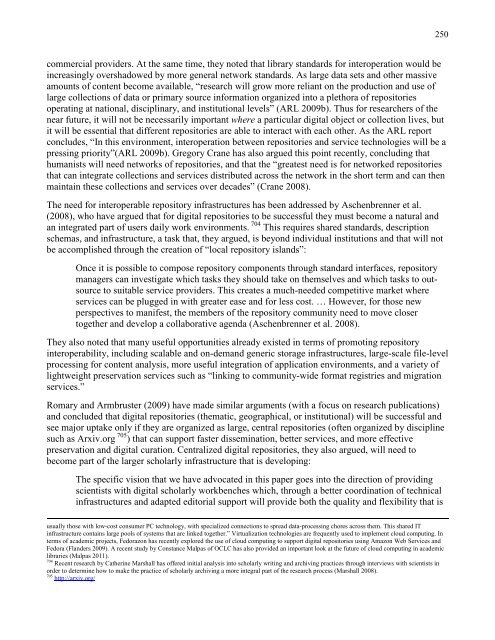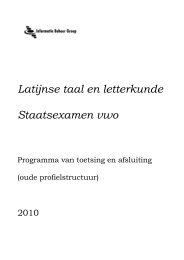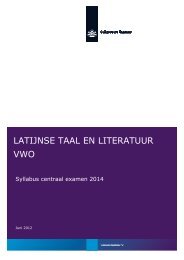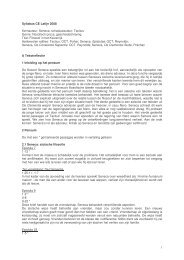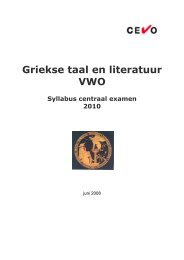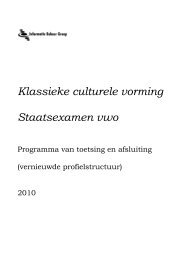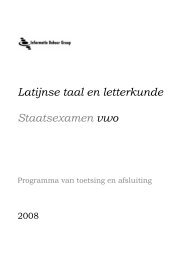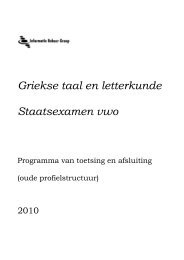Rome Wasn't Digitized in a Day - Council on Library and Information ...
Rome Wasn't Digitized in a Day - Council on Library and Information ...
Rome Wasn't Digitized in a Day - Council on Library and Information ...
Create successful ePaper yourself
Turn your PDF publications into a flip-book with our unique Google optimized e-Paper software.
250<br />
commercial providers. At the same time, they noted that library st<strong>and</strong>ards for <str<strong>on</strong>g>in</str<strong>on</strong>g>teroperati<strong>on</strong> would be<br />
<str<strong>on</strong>g>in</str<strong>on</strong>g>creas<str<strong>on</strong>g>in</str<strong>on</strong>g>gly overshadowed by more general network st<strong>and</strong>ards. As large data sets <strong>and</strong> other massive<br />
amounts of c<strong>on</strong>tent become available, “research will grow more reliant <strong>on</strong> the producti<strong>on</strong> <strong>and</strong> use of<br />
large collecti<strong>on</strong>s of data or primary source <str<strong>on</strong>g>in</str<strong>on</strong>g>formati<strong>on</strong> organized <str<strong>on</strong>g>in</str<strong>on</strong>g>to a plethora of repositories<br />
operat<str<strong>on</strong>g>in</str<strong>on</strong>g>g at nati<strong>on</strong>al, discipl<str<strong>on</strong>g>in</str<strong>on</strong>g>ary, <strong>and</strong> <str<strong>on</strong>g>in</str<strong>on</strong>g>stituti<strong>on</strong>al levels” (ARL 2009b). Thus for researchers of the<br />
near future, it will not be necessarily important where a particular digital object or collecti<strong>on</strong> lives, but<br />
it will be essential that different repositories are able to <str<strong>on</strong>g>in</str<strong>on</strong>g>teract with each other. As the ARL report<br />
c<strong>on</strong>cludes, “In this envir<strong>on</strong>ment, <str<strong>on</strong>g>in</str<strong>on</strong>g>teroperati<strong>on</strong> between repositories <strong>and</strong> service technologies will be a<br />
press<str<strong>on</strong>g>in</str<strong>on</strong>g>g priority”(ARL 2009b). Gregory Crane has also argued this po<str<strong>on</strong>g>in</str<strong>on</strong>g>t recently, c<strong>on</strong>clud<str<strong>on</strong>g>in</str<strong>on</strong>g>g that<br />
humanists will need networks of repositories, <strong>and</strong> that the “greatest need is for networked repositories<br />
that can <str<strong>on</strong>g>in</str<strong>on</strong>g>tegrate collecti<strong>on</strong>s <strong>and</strong> services distributed across the network <str<strong>on</strong>g>in</str<strong>on</strong>g> the short term <strong>and</strong> can then<br />
ma<str<strong>on</strong>g>in</str<strong>on</strong>g>ta<str<strong>on</strong>g>in</str<strong>on</strong>g> these collecti<strong>on</strong>s <strong>and</strong> services over decades” (Crane 2008).<br />
The need for <str<strong>on</strong>g>in</str<strong>on</strong>g>teroperable repository <str<strong>on</strong>g>in</str<strong>on</strong>g>frastructures has been addressed by Aschenbrenner et al.<br />
(2008), who have argued that for digital repositories to be successful they must become a natural <strong>and</strong><br />
an <str<strong>on</strong>g>in</str<strong>on</strong>g>tegrated part of users daily work envir<strong>on</strong>ments. 704 This requires shared st<strong>and</strong>ards, descripti<strong>on</strong><br />
schemas, <strong>and</strong> <str<strong>on</strong>g>in</str<strong>on</strong>g>frastructure, a task that, they argued, is bey<strong>on</strong>d <str<strong>on</strong>g>in</str<strong>on</strong>g>dividual <str<strong>on</strong>g>in</str<strong>on</strong>g>stituti<strong>on</strong>s <strong>and</strong> that will not<br />
be accomplished through the creati<strong>on</strong> of “local repository isl<strong>and</strong>s”:<br />
Once it is possible to compose repository comp<strong>on</strong>ents through st<strong>and</strong>ard <str<strong>on</strong>g>in</str<strong>on</strong>g>terfaces, repository<br />
managers can <str<strong>on</strong>g>in</str<strong>on</strong>g>vestigate which tasks they should take <strong>on</strong> themselves <strong>and</strong> which tasks to outsource<br />
to suitable service providers. This creates a much-needed competitive market where<br />
services can be plugged <str<strong>on</strong>g>in</str<strong>on</strong>g> with greater ease <strong>and</strong> for less cost. … However, for those new<br />
perspectives to manifest, the members of the repository community need to move closer<br />
together <strong>and</strong> develop a collaborative agenda (Aschenbrenner et al. 2008).<br />
They also noted that many useful opportunities already existed <str<strong>on</strong>g>in</str<strong>on</strong>g> terms of promot<str<strong>on</strong>g>in</str<strong>on</strong>g>g repository<br />
<str<strong>on</strong>g>in</str<strong>on</strong>g>teroperability, <str<strong>on</strong>g>in</str<strong>on</strong>g>clud<str<strong>on</strong>g>in</str<strong>on</strong>g>g scalable <strong>and</strong> <strong>on</strong>-dem<strong>and</strong> generic storage <str<strong>on</strong>g>in</str<strong>on</strong>g>frastructures, large-scale file-level<br />
process<str<strong>on</strong>g>in</str<strong>on</strong>g>g for c<strong>on</strong>tent analysis, more useful <str<strong>on</strong>g>in</str<strong>on</strong>g>tegrati<strong>on</strong> of applicati<strong>on</strong> envir<strong>on</strong>ments, <strong>and</strong> a variety of<br />
lightweight preservati<strong>on</strong> services such as “l<str<strong>on</strong>g>in</str<strong>on</strong>g>k<str<strong>on</strong>g>in</str<strong>on</strong>g>g to community-wide format registries <strong>and</strong> migrati<strong>on</strong><br />
services.”<br />
Romary <strong>and</strong> Armbruster (2009) have made similar arguments (with a focus <strong>on</strong> research publicati<strong>on</strong>s)<br />
<strong>and</strong> c<strong>on</strong>cluded that digital repositories (thematic, geographical, or <str<strong>on</strong>g>in</str<strong>on</strong>g>stituti<strong>on</strong>al) will be successful <strong>and</strong><br />
see major uptake <strong>on</strong>ly if they are organized as large, central repositories (often organized by discipl<str<strong>on</strong>g>in</str<strong>on</strong>g>e<br />
such as Arxiv.org 705 ) that can support faster dissem<str<strong>on</strong>g>in</str<strong>on</strong>g>ati<strong>on</strong>, better services, <strong>and</strong> more effective<br />
preservati<strong>on</strong> <strong>and</strong> digital curati<strong>on</strong>. Centralized digital repositories, they also argued, will need to<br />
become part of the larger scholarly <str<strong>on</strong>g>in</str<strong>on</strong>g>frastructure that is develop<str<strong>on</strong>g>in</str<strong>on</strong>g>g:<br />
The specific visi<strong>on</strong> that we have advocated <str<strong>on</strong>g>in</str<strong>on</strong>g> this paper goes <str<strong>on</strong>g>in</str<strong>on</strong>g>to the directi<strong>on</strong> of provid<str<strong>on</strong>g>in</str<strong>on</strong>g>g<br />
scientists with digital scholarly workbenches which, through a better coord<str<strong>on</strong>g>in</str<strong>on</strong>g>ati<strong>on</strong> of technical<br />
<str<strong>on</strong>g>in</str<strong>on</strong>g>frastructures <strong>and</strong> adapted editorial support will provide both the quality <strong>and</strong> flexibility that is<br />
usually those with low-cost c<strong>on</strong>sumer PC technology, with specialized c<strong>on</strong>necti<strong>on</strong>s to spread data-process<str<strong>on</strong>g>in</str<strong>on</strong>g>g chores across them. This shared IT<br />
<str<strong>on</strong>g>in</str<strong>on</strong>g>frastructure c<strong>on</strong>ta<str<strong>on</strong>g>in</str<strong>on</strong>g>s large pools of systems that are l<str<strong>on</strong>g>in</str<strong>on</strong>g>ked together.” Virtualizati<strong>on</strong> technologies are frequently used to implement cloud comput<str<strong>on</strong>g>in</str<strong>on</strong>g>g. In<br />
terms of academic projects, Fedoraz<strong>on</strong> has recently explored the use of cloud comput<str<strong>on</strong>g>in</str<strong>on</strong>g>g to support digital repositories us<str<strong>on</strong>g>in</str<strong>on</strong>g>g Amaz<strong>on</strong> Web Services <strong>and</strong><br />
Fedora (Fl<strong>and</strong>ers 2009). A recent study by C<strong>on</strong>stance Malpas of OCLC has also provided an important look at the future of cloud comput<str<strong>on</strong>g>in</str<strong>on</strong>g>g <str<strong>on</strong>g>in</str<strong>on</strong>g> academic<br />
libraries (Malpas 2011).<br />
704 Recent research by Cather<str<strong>on</strong>g>in</str<strong>on</strong>g>e Marshall has offered <str<strong>on</strong>g>in</str<strong>on</strong>g>itial analysis <str<strong>on</strong>g>in</str<strong>on</strong>g>to scholarly writ<str<strong>on</strong>g>in</str<strong>on</strong>g>g <strong>and</strong> archiv<str<strong>on</strong>g>in</str<strong>on</strong>g>g practices through <str<strong>on</strong>g>in</str<strong>on</strong>g>terviews with scientists <str<strong>on</strong>g>in</str<strong>on</strong>g><br />
order to determ<str<strong>on</strong>g>in</str<strong>on</strong>g>e how to make the practice of scholarly archiv<str<strong>on</strong>g>in</str<strong>on</strong>g>g a more <str<strong>on</strong>g>in</str<strong>on</strong>g>tegral part of the research process (Marshall 2008).<br />
705 http://arxiv.org/


